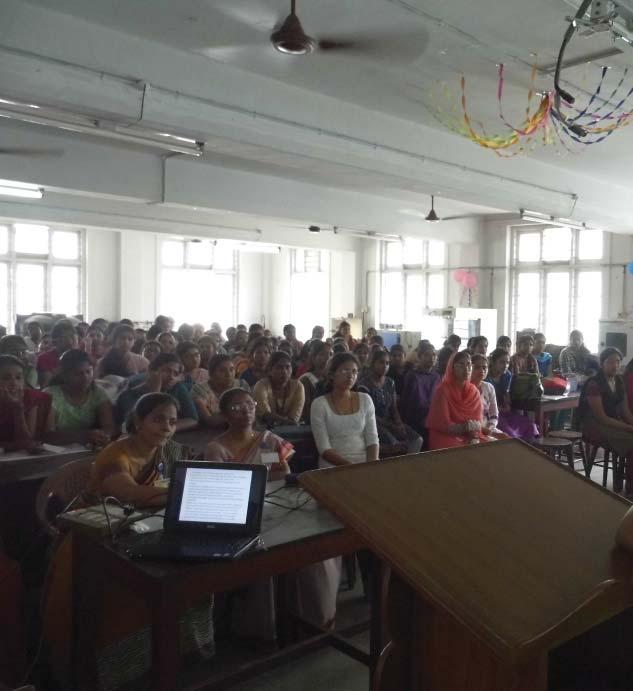
5 minute read
Ocean literacy campaign in Bangladesh
from NANO News 9
by NANO
high literacy for women, and women dominate in graduate and postgraduate levels (see photo on the right). I wondered if my experience shows that the girls are interested only in scoring high marks in exams and thereby securing seats available for higher studies? The outreach programme was an opportunity to assess the social commitment of the young generaƟ on in Kerala. Even as the grim reality of chronic polluƟ on from an oil terminal with minimum recepƟ on facility and the invisible threats to the ecosystem unwound in front of them, it was the school children who reacted strongly whereas the university students, who are the envoys of the future generaƟ on, viewed the whole scenario with apathy. This disinterest could have been because of their knowledge of these topics beforehand. The impression that I had from the outreach lectures was that any aƩ empt to create awareness on conservaƟ on of the sea has to be started among younger children. They imbibe informaƟ on, become alarmed by the dangers of silent chronic polluƟ on of the marine environment and would surely act, whereas the more scienƟfi cally literate the student is, the lesser is his commitment to the environment. This should not be viewed as a comment applicable to the student community as a whole, but this is a refl ecƟ on of the lethargic reacƟ on of some people of Kerala to socially relevant problems.
A view of the students who aƩ ended the outreach lecture at St. Teresa’s College, Kochi.
Advertisement

Dr Mohammad M. Uddin
hƩ p://www.nf-pogo-alumni.org/~M.+M.+Udddin InsƟ tute of Marine Science and Fisheries, University of ChiƩ agong, Bangladesh
Although “Ocean Literacy” is a growing movement in Europe and worldwide its necessity is yet to be felt naƟ onally in most of the developing countries such as Bangladesh. Most parts of the coun

try’s south and southeastern regions are less than 3 meters above sea level and has one of the most geomorphologically dynamic acƟ ve deltas prone to ocean-related hazards like cyclones, storm surges, fl oods etc. The country has already been suff ering from the vulnerable situaƟ on due to ongoing climate change. In addiƟ on, the off shore Island, Sandwip has been turned into a refugee site for climate change. But the people of this island (where about 350,000 people have been living in an area of only 250 km 2 ) are totally ignorant of the oceanographic and the climate knowledge necessary for hazard management and resilient community development. Inspired by the NANO outreach project iniƟ aƟ ve to encourage its alumni to conduct outreach acƟ viƟ es in their home countries, a proposal was submiƩ ed aiming to organize a seminar followed by a visit to Sandwip Island, Bangladesh. School teachers and students were primarily targeted as an important audience. Teachers are able to pass their knowledge onto students as well as society in general. Those students could grow up to become scienƟ sts, policy makers or any other type of stakeholder of the ocean. The Seminar was carried out in the framework of the 1 st aƩ empt of the “EducaƟ on and Prospect for Sandwip island, Bangladesh” supported by NANO Outreach project 2014. The workshop took place from 27 th to 30 th of December 2014. It was held at the Hall Room of Sandwip Ananda Pathshala in Sandwip Island, ChiƩ agong, Bangladesh. Briefl y, the seminar consisted of lectures, quesƟ ons and answers on the topics of Lectures (Ocean Literacy and RISCKIT) and followed by a site visit on the following day. The main goals set for the seminar and fi eld visit are stated below: ● Off er a brief introducƟ on to the Oceanography and importance of Ocean Literacy ● Off er a brief introducƟ on to the EU project RISCKIT and its acƟ viƟ es in Sandwip ● PresentaƟ on of the Lecture 1 on Ocean Literacy focusing understanding the Ocean’s infl uence on you and your infl uence on the Oceans following standard principles of Ocean Literacy including its worldwide view and status ● PresentaƟ on of the Lecture 2 on RISCKIT project focusing on the objecƟ ves of the project reasoning behind Sandwip to be selected as the only internaƟ onal study site outside of Europe and the results produced so far for the island
● Personal as well as group discussions with the interested parƟ cipants of the island on future prospects and oceanographic educaƟ on for the next two days
Two speakers led the seminar. At the beginning, Mr Abdur Rahim, Assistant Professor of History, Government Haji A. B. College at Sandwip, off ered opening lectures on general topics regarding the objecƟ ve of the seminar and importance of oceanographic research
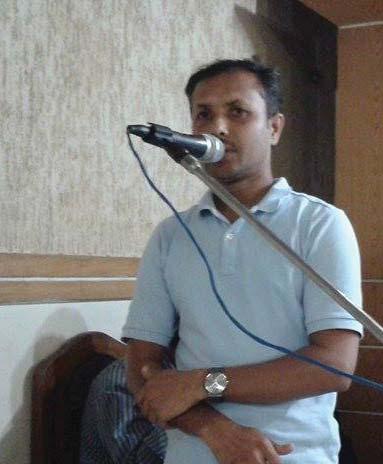
and educaƟ on for sustainable coastal and Island management. Furthermore, Dr Mohammad Uddin, from the InsƟ tute of Marine Sciences and Fisheries, University of ChiƩ agong delivered two more lectures on Ocean literacy and the Risckit project. Both speakers provided a valuable input as lectures and also by geƫ ng the public involved into the

discussion on how to improve oceanographic educaƟ on and research for the benefi t of the island in the face of climate change-related vulnerabiliƟ es. On the 2 nd day the parƟ cipants visited a site to the North of Sandwip, a newly accreted and eroded land area, and talked with aff ected people to understand their percepƟ ons. Finally, it is worth menƟ oning that the conducted outreach project served as an appreciated start for Oceanographic educaƟ on which promised to yield remarkable outcomes for the whole island. Moreover, both organizers and parƟ cipants perceived and acknowledged the commitment of POGO and NF in order to get a good outcome for the moƩ o- “together we can make a change in the world!”
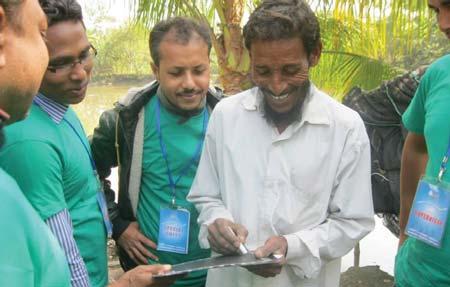
Scenes of NANO Outreach acƟ vity in Bangladesh
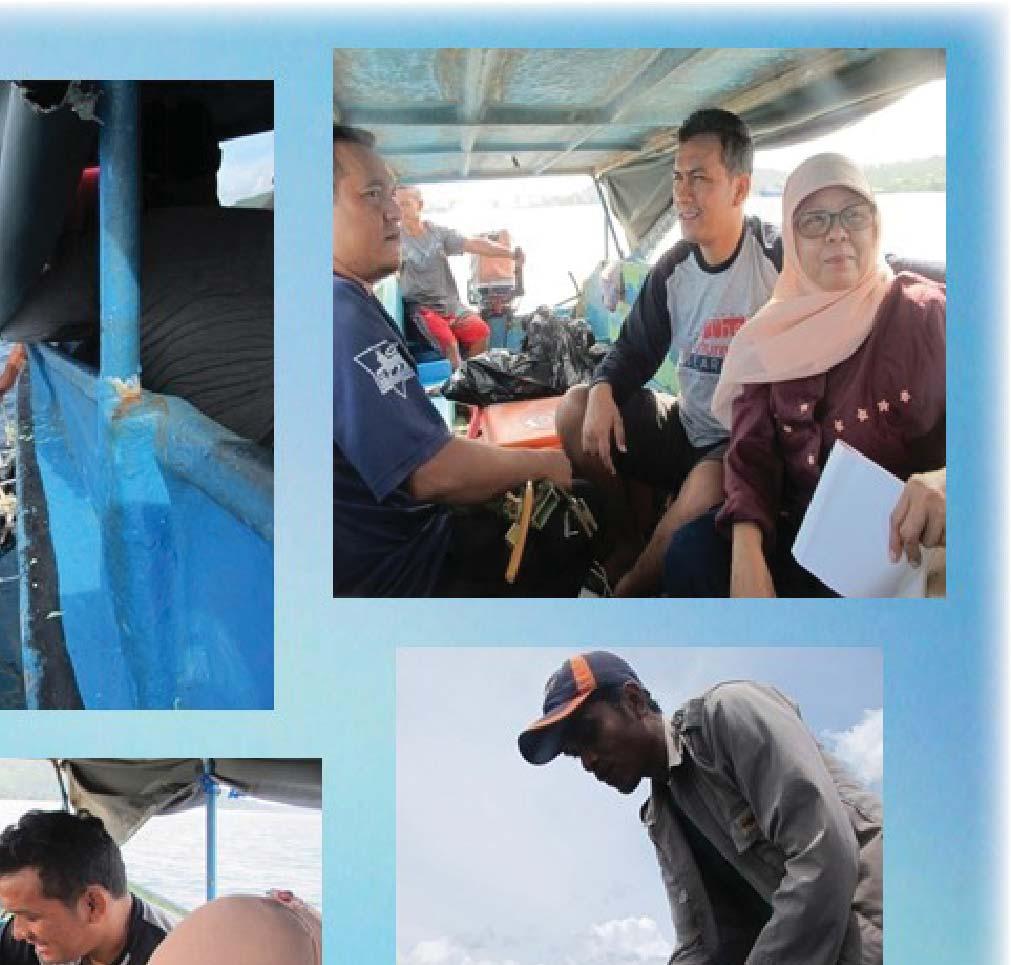
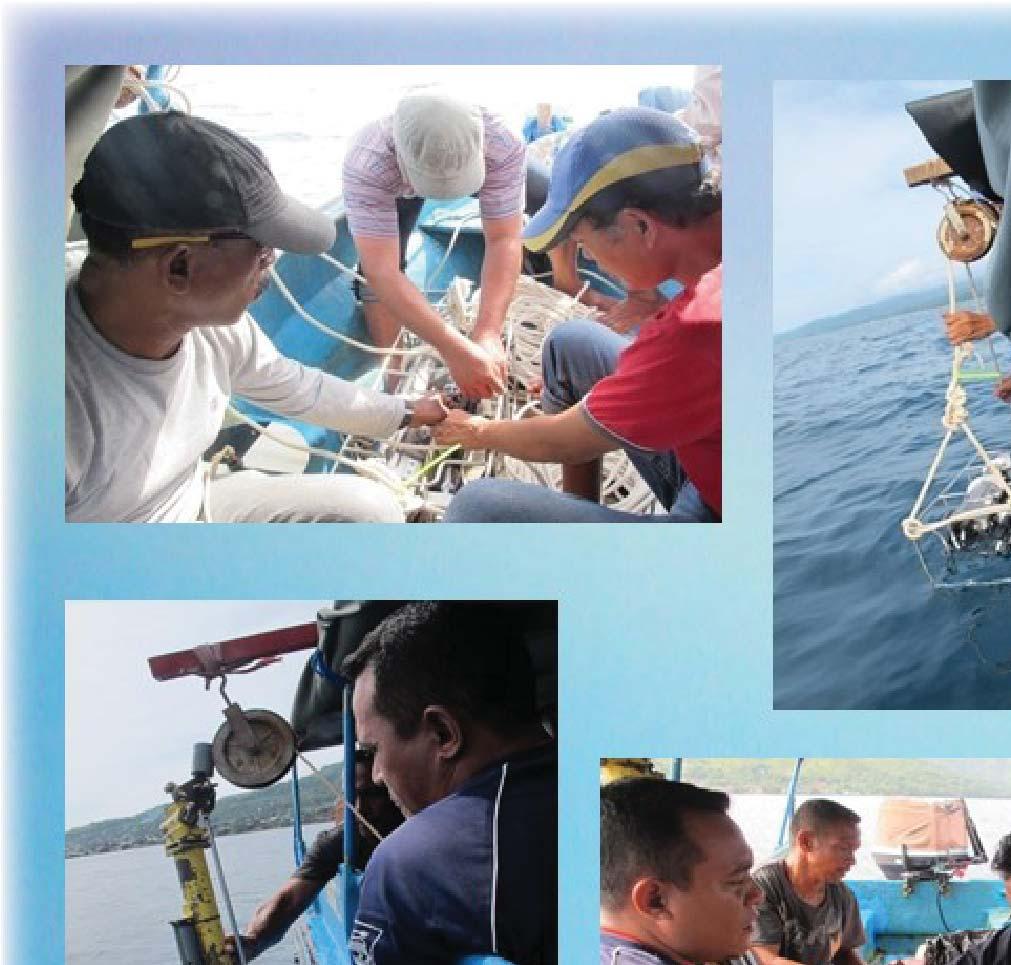
NANO SEAsia Regional Project field work in Indonesia. Read more at page 17











